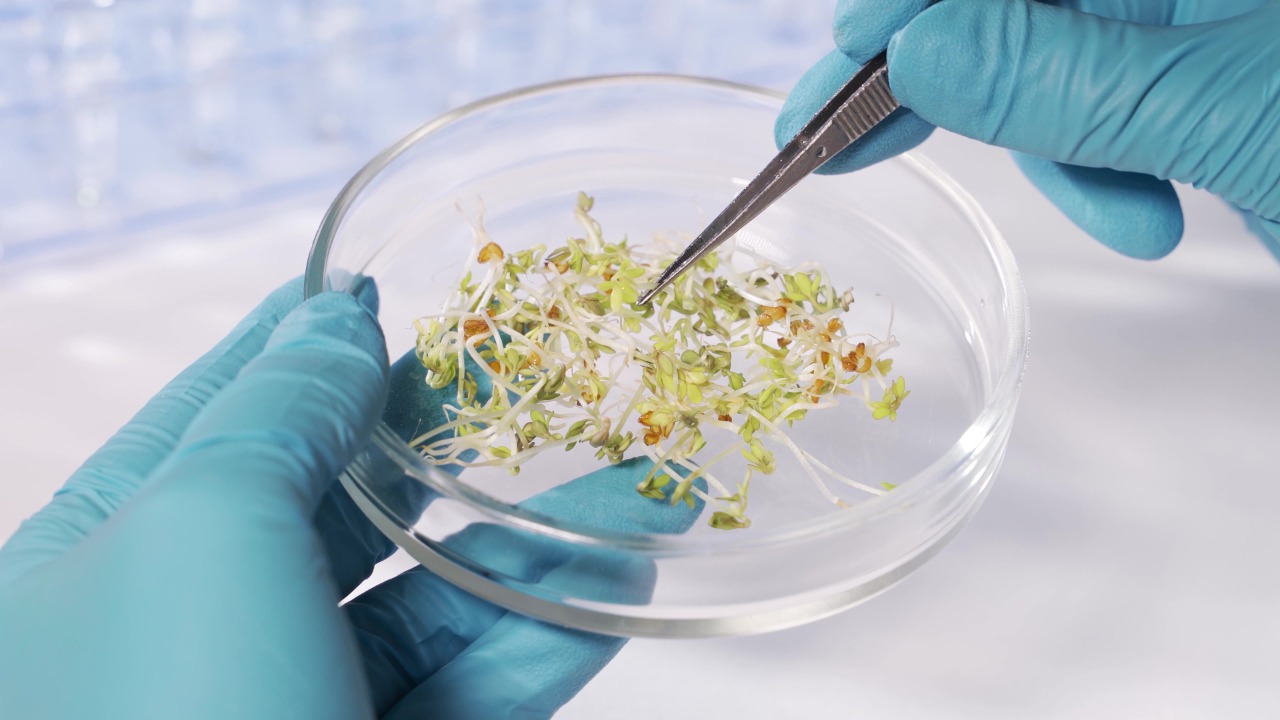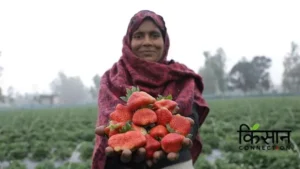With four days remaining for the public feedback for the draft regulations issued by the Food Safety and Standards Authority of India (FSSAI) for the genetically modified food (GM), on January 11, social media was flooded with calls for protest against the Union government’s alleged move to allow the introduction of such edible in India.
These draft regulations titled Food Safety and Standards (Genetically Modified or Engineered Foods) Regulations, 2021 were released on November 15, 2021 and the last date for the public feedback submission is January 15, 2022.
At the helm of the protest against the draft regulations is an organisation called the Coalition for a GM Free India, an nation-wide network of organisations and individuals concerned about the environmental release of genetically modified organisms.
Kavitha Kuruganti, a social activist who is also the founder convenor of Alliance for Sustainable and Holistic Agriculture (ASHA), tweeted that “In SC @fssaiindia stated that GM foods are unpermitted. Why are then they keeping mum on illegal GM foods coming in? Why don’t they crack down on hazardous foods even though food safety is primary duty??! #NoGMFoods @mansukhmandviya @ashwani_mahajan”
In SC @fssaiindia stated that GM foods are unpermitted. Why are then they keeping mum on illegal GM foods coming in? Why don’t they crack down on hazardous foods even though food safety is primary duty??! #NoGMFoods @mansukhmandviya @ashwani_mahajan
— Kavitha Kuruganti (@kkuruganti) January 11, 2022
“Within the food industry, there is a push towards import of genetically modified food products. They have already got permission in the poultry industry to introduce genetically modified soy as feed in the poultry,” Usha Soolapani, a Thiruvananthapuram-based rice activist, and the co-founder of Thanal, an environmental organisation, told Gaon Connection.
Stating that consumption of GM food has repercussions not only on one’s health but also on the environment, Soolapani added, “ASHA Network and the Coalition for a GM Free India are working across the country to promote sustainable agriculture and ensure food security. We are worried that if cheap GM food is allowed in the country, it will have long-term health implications.”
Soolapani also pointed out that the draft guidelines introduced by FSSAI are not easily accessible to people because it has been published in English and not been translated in vernacular languages.
“Only a handful of people who have knowledge about this issue have read it. Even the state government officials have not given any feedback, no discussions were held by them. We want the government to extend the deadline for public feedback, and also want the drafts to be translated in vernacular language so a discussion can be held. There is no reason to hurry the regulations since genetically modified food is not currently allowed in India,” Soolapani stated. The last date for public feedback for the draft is January 15, 2022.
Also Read: Why Zero Budget Natural Farming is important for our farmers?
What do the activists demand?
A feedback letter addressed to the FSSAI was released by Coalition for a GM Free India which cited a slew of problems with the draft regulations.
Stating that a majority of states in India have adopted policies that are against GMOs in food and farming systems, the letter demanded that every application should be processed after obtaining inputs and recommendations from state governments.
“The processing of and decision on an application for approval of a GM ingredient should also ensure that the “No GM Foods Policy” of any state government is completely and inviolably protected and upheld,” the letter stated.
The letter also emphasised on the role of the Genetic Engineering Appraisal Committee (GEAC) that functions under the Ministry of Environmental, Forest and Climate Change. Noting that GM foods has ramifications with regard to environment and animal well-being, in addition to human health, the regulation of GM foods should be developed in harmonisation with the regulations of GEAC. “The EPA 1989 Rules have a mandate imposed on GEAC to regulate all GM foods,” the letter indicated.
The coalition body in its letter also demanded that for every application submitted to FSSAI, biosafety data should be submitted as results of conducting third-party testing of the GM food, according to a set of prescribed tests in order to prove long term and comprehensive safety of the said GM food product.
Also Read: In reality, Zero Budget Natural Farming certainly is not zero budget
Another important point that the letters raises is that the labelling requirement for GM food should have 0.1 per cent threshold.
“Labeling as a mechanism of providing a limited set of consumers their right to know and right to informed choices, should not be diluted in any way and should be mandatory. The labeling requirement should kick in by keeping the threshold at 0.01% when the detection mechanism is able to provide this at 0.01% threshold. Therefore, labeling should become mandatory if any food contains individual GM ingredient/ material at 0.01% threshold,” the letter suggested. As per FSSAI’s draft regulations, all food products having individual Genetically Engineered (GE) ingredients one per cent or more shall be labelled.
Impact on agriculture
It’s important to note that in India, the only GM crop that is allowed to be imported is cotton. In 2021, it was reported that India was all set to import 15 lakh tonnes of GM soymeal, in view of the demand raised by the poultry industry, after getting approval from adequate authorities. Before the introduction of the mentioned guidelines, GM foods were not allowed in the country. In 2010, attempts were made to introduce Bt brinjal which did not materialise.
Explaining how introduction of GM food will affect farmers and agricultural practises in India, Kapil Shah, director of Jatan, an organisation promoting organic farming in Vadodara, Gujarat told Gaon Connection, “If GM food is allowed today then GM crops might be introduced tomorrow that will be very harmful to the farmers, especially small farmers. It will contaminate the non-GM crops through vertical or horizontal gene transfer. GM crops emit toxins unlike non-GM crops by virtue of BT genes in it and herbicides sprayed over them so that it will be more harmful for the environment.”
Talking about the need for testing and monitoring the harmful effects of GM crops on the environment, Shah added that GM crops disturb farm ecology. “It can pollute the air, water including aquatic life and soil organisms too,” he said.
Shah also emphasised that using GM crops will not give opportunities to farmers to go organic or practice natural farming. “The usage of chemicals will also increase the cost of production for farmers. In addition to that, if an organic farmer’s neighbour is using GM crops then his crop will also be contaminated. The debris of BT or GM crop remains in the soil which carries Bt toxins. Most GM crops are herbicide tolerant which will tempt the farmers to use more herbicides whose residue will be added to the soil thus adding more toxins,” he stated.
Additionally, he also said that seed companies want that farmers to buy seeds from the market every year, and GM technology is used in a way that farmers lose their seed sovereignty, which is very basic for food security.
FSSAI draft regulations can be accessed here.



















